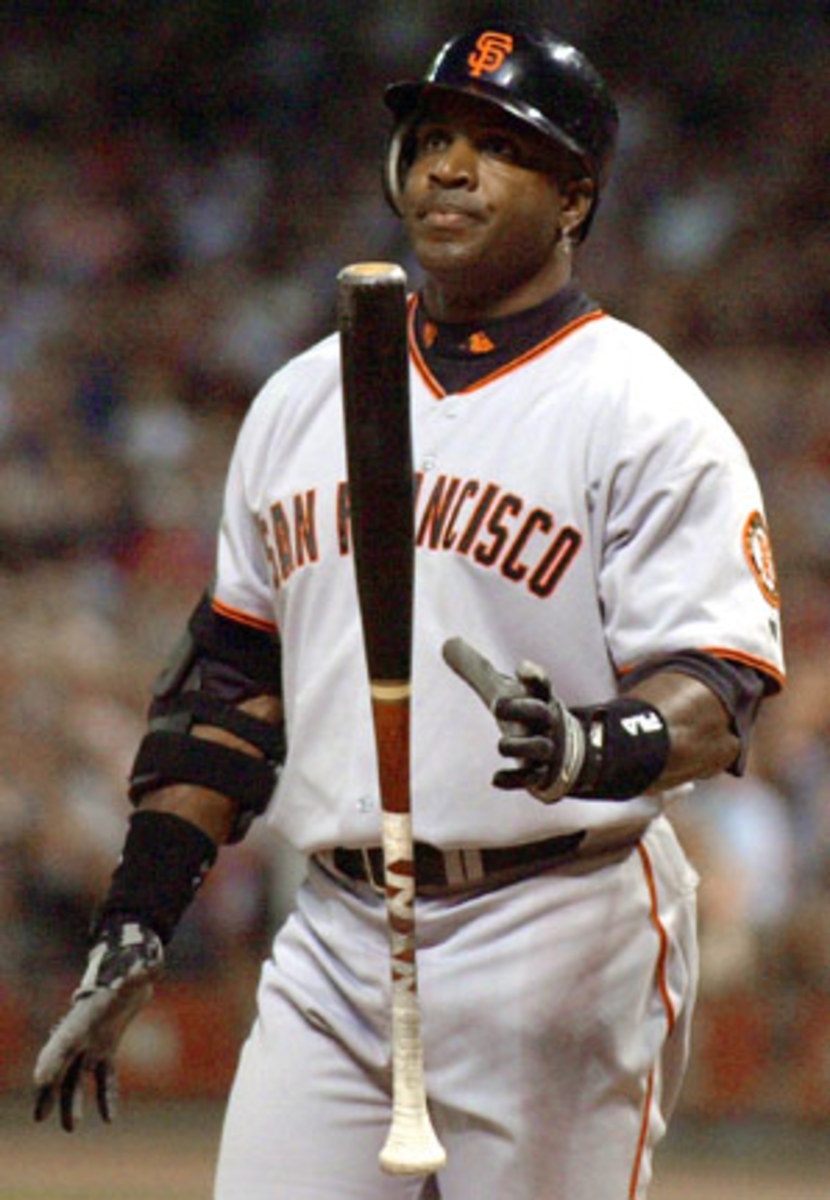As Bonds, Clemens go on trial they pose Hall of Fame dilemma
The Roger Clemens arraignment mug shot, complete with spiky blond highlights, is making the rounds. Jury selection in his perjury trial is set for April 5, 2011.
But the real day of reckoning will be New Year's Eve, 2012.
That's the day the Baseball Hall of Fame ballot will be due. The one with both Clemens and Barry Bonds' names on it.
Those of us with a vote have 28 months to wrestle with the process.
For some voters there's no wrestling. They have already made up their minds. No problem. They will vote Clemens and Bonds in -- the best players of their era -- without a second thought.
Those voters believe:
1) The Hall of Fame isn't church -- and there are lots of bad guys in there already.
2) Numbers are the only things that count.
3) Guys like Bonds and Clemens were Hall of Famers before they used PEDs.
4) That Rule 5 -- the so-called character clause -- should be stricken from the ballot. Rule 5 states that "Voting shall be based upon the player's record, playing ability, integrity, sportsmanship, character, and contributions to the team(s) on which the player played."
5) You can't tell who was cheating and who wasn't so everyone worthy should be voted in.
6) The voters have "no choice" -- a phrase I've heard several times--but to vote those players in.
For the rest of us, it's just not that easy. Wish that it were.
Each point the "vote 'em in" group makes, only creates more questions in my mind.
• Yes, there are a lot of bad guys in the Hall of Fame, men like Cap Anson who did all he could to keep baseball segregated. He was done playing in 1897 and was voted in in 1939. Now, I wasn't around in 1939, and don't know what the debate, if any, was about Anson. But am I beholden to every decision voters have made ahead of me? Does every era have to vote the way writers in the mid-1930s would have voted?
• If the numbers are the only things that count, why don't we just use a computer? Crunch the numbers, spit out the results and take the human element out of it?
• If a player was a surefire first ballot Hall of Famer and then decided to use drugs as a way to 1) get richer, 2) get more personal fame and 3) steal other men's records, doesn't that only make his transgressions worse? Not more palatable?
• Maybe Rule 5 should be done away with, and maybe it will be -- though I doubt it -- by the time the ballot is issued in 2012. But it is part of the procedure for now. And while plenty of voters choose to ignore it, over the course of history plenty of voters have chosen to abide by it and placed their votes accordingly. If we ignore that rule, can we ignore other ones? Do we ignore only the part about integrity and character? How else do we parse it?
• If I have to vote for everyone with Hall of Fame numbers, because I don't know who was using and who wasn't, what about fringe players? What if they could have been Hall of Famers if they'd used drugs but chose not to? Should I vote for them too?
Voters do have a choice. Maybe we shouldn't be the ones making the decision -- and plenty of people think we shouldn't -- but for now we have the vote. And the Hall of Fame is the biggest honor we can bestow on a player. Every voter I know takes the process seriously.
Which leads me to my main question: If I've spent years writing about the scourge of steroids and how bad it was for the game, can I then turn around and reward the perpetrators of the crime with the biggest honor in all of baseball?
Maybe I'll have it all figured out in 28 months.






